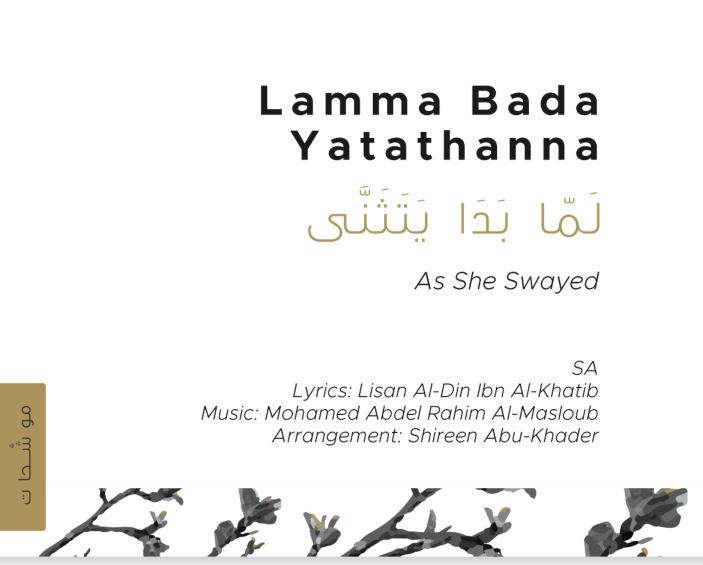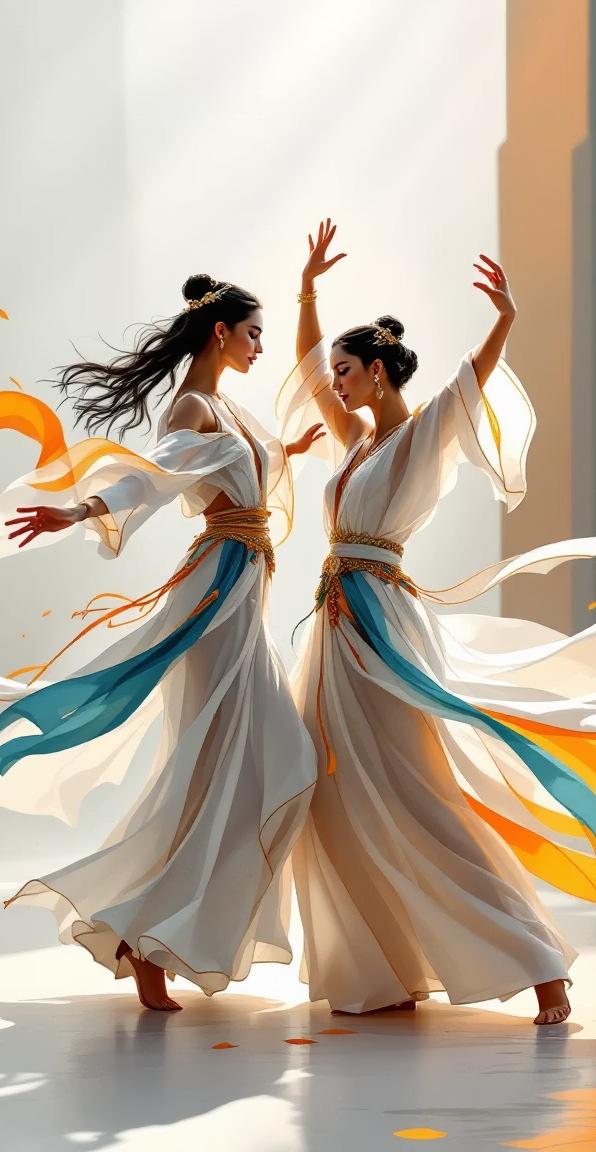

Lamma Bada Yatathanna: The Timeless Andalusian Love Song
An ancient muwashshah that transcends time, capturing hearts across centuries with its haunting melody and poetic beauty.


Dozan World
If choral Arabic music is not your area of expertise, Lamma Bada Yatathanna could be&
LammaBadaYatathanna
Origins: A Song from Moorish Spain
"Lamma Bada Yatathanna" is a muwashshah, a sophisticated secular poetic and musical form that emerged from Al-Andalus4Moorish Spain4 over 500 years before 1492. This masterpiece represents the pinnacle of Andalusian artistic achievement.
While the original composer remains shrouded in mystery, many scholars attribute the poem to the renowned Andalusian poet and statesman Ibn al-Khatib (1313-1374), who served at the Nasrid court in Granada.
Remarkably, this piece survived centuries of cultural upheaval, the Reconquista, and countless political changes, remaining a beloved classic throughout the Arab world and Middle Eastern music traditions.

What is a Muwashshah?
Complex Poetic Form
A sophisticated classical Arabic literary structure featuring intricate rhyme schemes and stanzaic patterns unlike traditional Arabic poetry
Musical Integration
Pairs elaborate poetry with complex rhythmic patterns, creating a seamless fusion of word and sound
Secular Expression
Often celebrates earthly love, beauty, wine, and nature4distinct from religious devotional forms
"The cream of poetry and its choicest pearl" 4 Ibn Dihya, 13th-century scholar
"Lamma Bada" exemplifies this tradition with its rich poetic imagery, sophisticated musical structure, and timeless emotional resonance that continues to captivate audiences worldwide.
The Lyrics: A Poem of Enchantment and Longing
The title translates as "When She Begins to Sway," describing the mesmerizing, almost supernatural beauty of a beloved whose movements entrance the observer.

Opening Verse
"Whenshebegantosway, mylove'sbeautyfascinated me.Herbeautyhasslainme; havemercyonone consumedbypassion."


Visual Imagery
"Abranchbentwhenshe leaned,swayingwithsupple grace4whydoesitenchant myheartso?"

Divine Appeal
"Whocananswermycomplaintaboutloveandsufferingbutthe Lordofbeauty?"


Interestingly, the lyrics use classical Arabic with male pronouns as a poetic convention, allowing for rich interpretations including gender fluidity and homoerotic subtext4common themes in medieval Andalusian poetry.

The Unique Rhythm: Samai Thaqil in 10/8 Time

Unlike common Western 4/4 or 3/4 rhythms, "Lamma Bada" employs samai thaqil, a sophisticated 10/8 meter divided as 3-2-3-2 beats.
This creates a hypnotic, flowing pulse that both challenges and enchants musicians and dancers, requiring careful attention to maintain its distinctive groove.
Percussion Pattern
Dum (deep drum sound) and tekk (high rim sound)
combine to create the song's distinctive texture: dumtekk-tekk | tek-tek | dum-tekk-tekk | tek-tek
Musical Modes: The Nahawand Maqam



Nahawand Maqam
The melody is built on the Nahawand maqam, comparable to the harmonic minor scale in Western music but with subtle microtonal inflections
Emotional Resonance
This maqam evokes profound feelings of longing, melancholy, and bittersweet beauty4perfectly matching the poetic themes of desire and yearning
Improvisation Canvas
The song's modal and rhythmic complexity has made it a favorite vehicle for taqasim (improvisation) and creative reinterpretation across generations
Enduring Popularity and Interpretations
"Lamma Bada Yatathanna" remains a cornerstone of Arabic music repertoires and an essential piece for belly dance performances worldwide, bridging traditional and contemporary contexts.
Fairuz
The legendary Lebanese diva's ethereal voice brings celestial grace to this earthly love poem
Sabah Fakhri
The Syrian maestro's powerful traditional interpretation showcases virtuosic vocal ornamentations
Hamza El Din
The Nubian master creates an intimate, meditative version on solo oud with profound emotional depth
Lena Chamamyan
A contemporary Syrian artist who infuses the classic with modern sensibilities and fresh arrangements
Sami Yusuf
The British-Iranian artist bridges Islamic spiritual music with this Andalusian treasure
Each artist brings unique improvisations and personal expression, reflecting the muwashshah tradition's celebration of individual artistry within classical forms.
Cultural and Emotional Depth
Layers of Meaning
Scholars have identified homoerotic elements within the song's poetry, reflecting medieval Andalusian literary themes that openly explored diverse expressions of love and desire4 a remarkable feature of this sophisticated culture.
The lyrics blur boundaries between poetry and reality, between spiritual and earthly love, creating a work of profound emotional complexity that rewards deeper contemplation.

The song's enduring beauty lies not only in its haunting melody but in the layered meanings embedded within its lyrics4 inviting each generation to discover new dimensions of human experience.

Listening Experience: A Musical Journey
Recordings of "Lamma Bada" span an extraordinary range, from austere traditional oud and percussion to lush orchestral arrangements incorporating diverse world music elements.
1 Traditional
Hamza El Din's evocative solo oud version strips the song to its essence4intimate, contemplative, profoundly moving
2 Contemporary
Lena Chamamyan's modern Syrian interpretation adds rich instrumental textures while honoring classical traditions
3 Fusion
Radio Tarifa's groundbreaking version fuses the Andalusian original with flamenco, North African, and medieval European sounds
The distinctive 10/8 rhythm invites dancers to explore new expressive possibilities, creating mesmerizing performances that echo the swaying beauty described in the original poetry.

A Living Legacy of Love and Art
Cultural Bridge
Connecting medieval AlAndalus with today's global music scene, transcending geographical and temporal boundaries
Artistic Immortality
Its continual reinvention by new generations testifies to the enduring power of great art to speak across ages
Universal Language
Expressing the timeless human experiences of beauty, longing, and love in ways that resonate across all cultures
More than a song4a testament to beauty's eternal power
Let this ancient melody inspire us to appreciate the profound beauty of cultural heritage and remember that music and poetry remain humanity's
